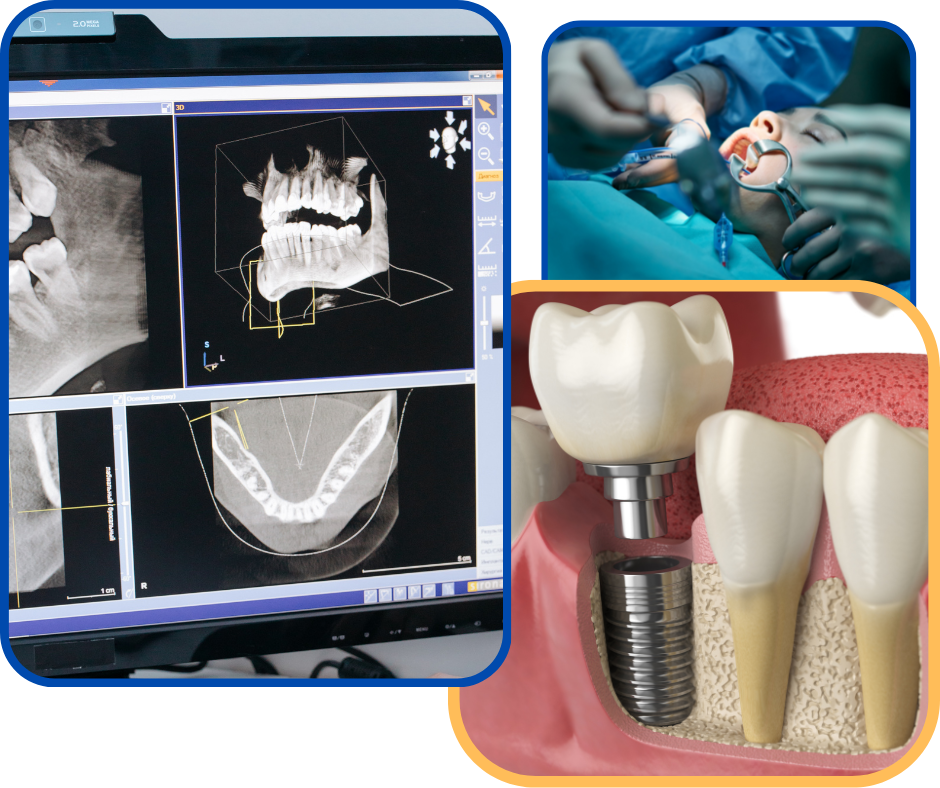ORAL & MAXILLOFACIAL SURGEONHave you ever wondered who you’d see if you had a serious dental emergency? Not something small like a sore or chipped tooth, but something major like a broken jaw or cheek bone from a fight, a tumor in the jaw, or a major infection from a neglected wisdom tooth. If you had a problem like any of these, then you’d see someone who is very specialized in surgery of the face, mouth and jaws. This professional is an Oral and Maxillofacial Surgeon. |
|
BECOMING AN OMF SURGEONSince Oral & Maxillofacial Surgery deals with the most serious of facial problems, it’s a difficult field to enter. In fact, there are only about 600 Oral & Maxillofacial Surgeons in Canada. Prospective surgeons must first complete dental school, which takes 7-8 years of university training, before they can apply to a surgical program. These programs are affiliated with universities and are hospital based. Surgeons master their surgical skills, but also gain experience in many different kinds of surgery, anesthesia, and medicine. Some will also complete training as a physician to get their medical (MD) degree, or a Master of Science (MSc) degree. After 12-16 years of training, the final hurdle is high stakes written and oral examination where surgeons from across Canada assess candidates’ knowledge and competence. Once surgeons pass this examination, they will be designated a Fellow of the Royal College of Dentists of Canada, can place “FRCD(C)” after their name, will be designated a “Specialist” by the Royal College of Dental Surgeons of Ontario, and can rightfully call themselves Oral & Maxillofacial Surgeons. What is the difference between and Oral & Maxillofacial Surgeon and a Dental Surgeon Many general dentists are given the degree “Doctor of Dental Surgery” or DDS, and in fact “Dental Surgeon” can refer to any registered dentist. However, this should not be confused with Oral & Maxillofacial Surgeon, which is a protected title reserved for those with specialist training in surgery. | BEEN REFFERED TO AN OMF SURGEON FOR WISDOM TEETH OR DENTAL IMPLANT?Because Oral & Maxillofacial surgeons care for the most complex issues with the mouth, face, and jaws, minor surgical procedures like extraction of wisdom teeth and placement of dental implants are routine to them. There is a direct relationship between how long an operation takes, how traumatic the procedure is, and its complication rate. In other words, the same wisdom tooth removed over 45 minutes with someone that is relatively inexperienced, versus 10 minutes with a specialist is less likely to have a dry socket or an infection. Oral & Maxillofacial Surgeons can also give all levels of sedation or anesthesia. Looking for more information?Most surgeons will accept direct requests for consultation from patients. Referrals from family dentists are common, but not necessary. If you have questions about your care, contact us or search for a surgeon. |

.jpg)


